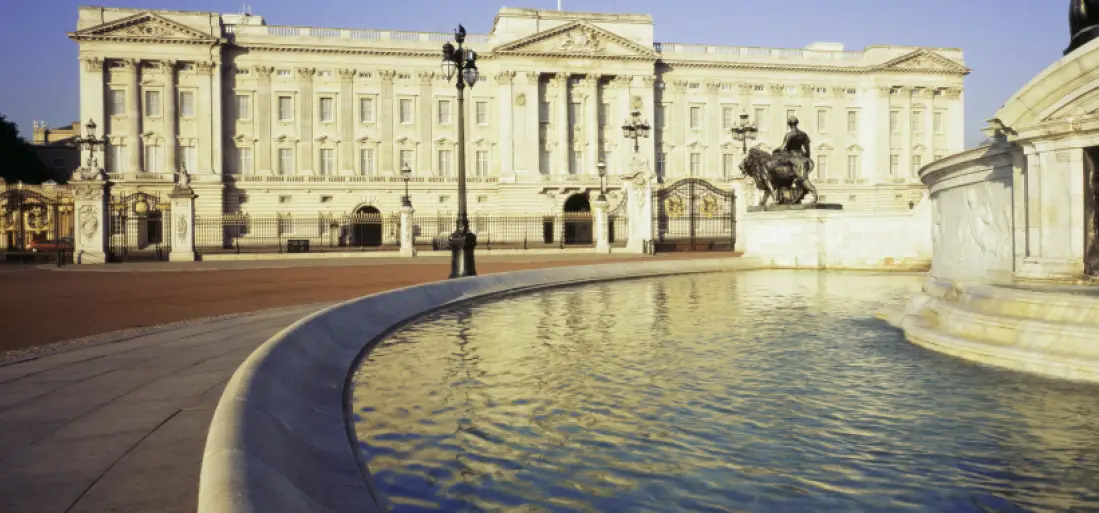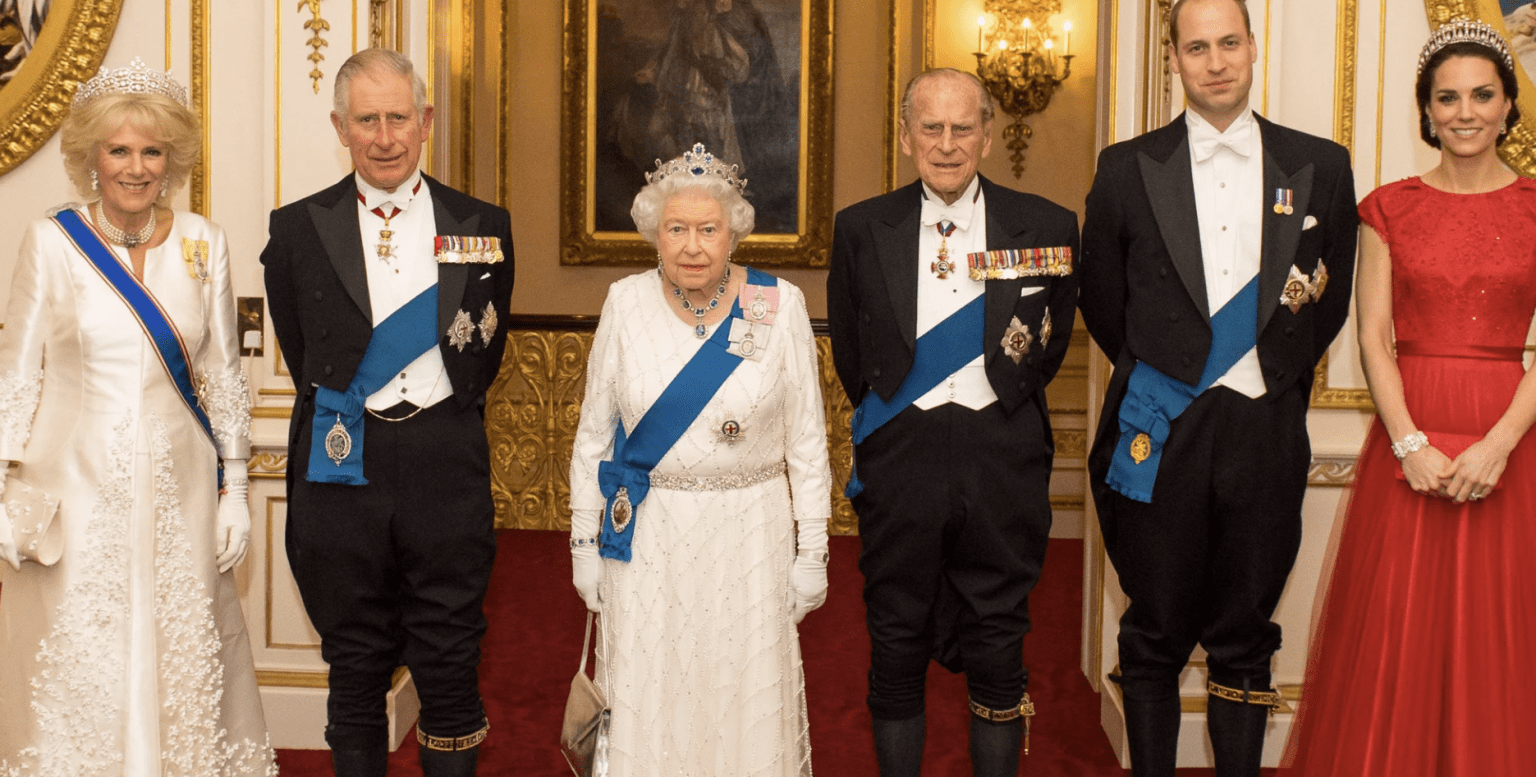I often earn from qualifying purchases. This includes Amazon Associates.
How does the royal family make money? It’s a question that has intrigued many, sparking countless discussions and debates.
The financial operations of the British monarchy are intricate and varied. But they’re not shrouded in complete mystery.
Digging into their income sources, we find an interesting mix of public funds, private estates, and personal investments. Indeed, understanding how does the royal family make money, offers fascinating insights into this centuries-old institution.
This isn’t just about curiosity though. There are important implications for taxpayers too – after all, part of their wealth comes from public coffers!
Decoding the Wealth: How Does the Royal Family Make Money?
Explore their diverse income sources and learn how the royal family makes money. Don’t miss out.
Unraveling the Royal Finances
The financial intricacies of the royal family are a fascinating blend of tradition, legislation, and private wealth. It’s crucial to understand that Buckingham Palace stopped releasing specific payment information in 2010. This has led to estimations based on historical data adjusted using England’s inflation calculator.
While some members of the Windsor family have personal fortunes from inheritance or marriage, much income comes from funds for official duties such as maintaining residences like Kensington Palace and St James’s Palace.


Distinguishing between public funding for official duties versus private income can be challenging due to lack of transparency. For example, when asked about Prince Andrew’s payments after his retirement from public life, both Buckingham Palace spokespersons replied ambiguously without providing concrete numbers.
A Look at Public Funding: The Sovereign Grant
An important portion of royal finances stems from what is known as the Sovereign Grant, which replaced several older forms of financing including Civil List payments and grants-in-aid back in 2011 under George Osborne’s chancellorship.
This grant constitutes a percentage (currently set at 25%) of the profits generated by the Crown Estate – an independent commercial business owned by the monarch but managed separately, with its surplus revenue going directly into Treasury coffers each year.
Huge Hereditary Estates: Duchy Of Lancaster And Duchy Of Cornwall
In addition to publicly funded sources, there are two huge hereditary estates: The Duchy Of Lancaster provides an income for Queen Elizabeth II, while The Duchy Of Cornwall serves as the primary financial support for Prince Charles – next in line to the throne. These properties range across rural farmland areas along with urban real estate holdings like London’s Oval cricket ground (Duchy Of Cornwall) and the historic Savoy Estate located near Strand (Duchy Of Lancaster).
The Royal Duties and Engagements
Official royal engagements form a substantial part of the responsibilities for the UK’s working royals. These duties span from attending charity events to participating in state visits, all of which are carefully documented by observers like Tim O’Donovan since 1979. This data provides an invaluable understanding of the breadth and depth of royal obligations.
These official commitments offer insights into how members of the Windsor family contribute to public life, with their roles often extending beyond mere ceremonial appearances.
Role of Working Royals
A ‘working royal’ is essentially a member of the royal clan who performs public tasks representing Queen Elizabeth II at various occasions both domestically and internationally. Their duties encompass meeting with dignitaries, supporting charitable causes, presenting honors or awards, among other activities.
This role demands commitment as it frequently involves extensive travel coupled with long hours spent at different gatherings – be they formal dinners or community outreach initiatives.
In terms of financial compensation for these efforts, traditionally annual payments were made derived either directly from government funds or private estates controlled by senior figures within their ranks, such as Prince Charles’ Duchy Of Cornwall estate that was used specifically for his sons William And Harry until they established independent households respectively at Kensington Palace and St James’s Palace.
Certain changes have been observed recently regarding this arrangement, especially after high-profile departures involving individuals like Prince Andrew due to controversies related to his association with convicted sex offender Jeffrey Epstein. He stopped receiving payments after completing his last formal engagement back in November 2023. Buckingham Palace has refrained from commenting further on specifics pertaining to any financial arrangements concerning him thereafter when asked about its stance towards ongoing legal proceedings against him during August 2023 across the Atlantic Ocean – according to them, no running commentary would be provided on matters currently before the judiciary system there.
The Sovereign Grant Explained
One of the key revenue streams for the royal family is The Sovereign Grant. This financial provision serves as a lifeline, funding their official duties and engagements including maintenance costs for properties like Buckingham Palace and Kensington Palace.
For 2023-2023, it’s worth noting that this grant was set at £86.3m – an amount maintained from its previous year despite economic fluctuations or changes in government policies.
Calculation of the Sovereign Grant
To comprehend how much money gets funneled into this fund each year, we need to dissect its calculation process. A major component here is profits generated by The Crown Estate. In fact, assets tied to The Crown Estate were valued at a staggering £16.5bn in 2023 alone.
This estate includes vast areas across London such as Regent Street and St James’s Park along with offshore wind farms spread across UK waters among other valuable holdings. As reported recently, when offshore wind farm profits rise significantly, so does the recalculated value for this essential royal income source. It also contributes towards maintaining England’s inflation calculator figures within acceptable ranges, ensuring sustainability aspects are adequately met without compromising on the quality standards expected throughout all operations carried out under the auspices associated primarily with the smooth functioning of necessary administrative tasks. These tasks are required to be performed regularly without interruptions caused due to a lack of adequate resources available for use whenever needed, especially considering the growing demands placed upon individuals involved in directly carrying out day-to-day running activities. This is closely connected to keeping everything moving forward efficiently and effectively while still adhering strictly to the laid-down guidelines stipulated clearly in detailed legal documents outlining specific terms and conditions agreed upon initially before the implementation stage commenced. It has been in fully operational mode ever since then onwards till the present moment, continuing well beyond the foreseeable horizon. Looking ahead optimistically and positively, we anticipate further progress made in strengthening ties between the monarchy and the public alike, both domestically and
Additional Sources of Income for Royals
The royal family’s wealth isn’t solely reliant on the Sovereign Grant. Other sources, such as hereditary estates and private financial arrangements, significantly contribute to their income.
Duchy Estates as Income Sources
The Duchy of Lancaster and the Duchy of Cornwall are notable examples that serve as major revenue streams for senior members of the Windsor family. These Duchy Estates, composed largely of agricultural, commercial, and residential properties scattered across England, play a crucial role in sustaining their lifestyle.
Queen Elizabeth II holds The Duchy of Lancaster trust, which provides an independent source used primarily to fund official expenses incurred by herself along with other royals not covered under the Sovereign Grant. In 2023 alone, this estate generated approximately £23 million ($31 million).
In contrast, Prince Charles is the Duke of Cornwall, hence profits from its landed estate go directly towards his personal expenditure, including those related to Duchess Camilla Parker Bowles plus Princes William & Harry before they established separate households.
Royal Collection Trust Revenues
Besides these large land holdings, there are also revenues derived through cultural assets managed by The Royal Collection Trust, such as Buckingham Palace’s summer opening or exhibitions at Queen’s Galleries located within London & Edinburgh, respectively, among others. Throughout year-round events catering to public access via various programs designed specifically to cater to a wider audience globally, speaking in terms of the general perspective. Looking at the overall scenario concerning matters pertaining to the UK Crown, it is generally taken into account here, considering the broader context surrounding the subject matter at hand, namely the British monarchy represented currently by the queen herself plus heirs apparent waiting in line for succession to the throne, respectively, following the order of precedence laid out by constitutionally binding rules and regulations governing affairs at the state level in the national and international arena, where all aspects are considered holistically together, collectively, jointly, unified, concerted, coordinated, harmonized, synchronized, synergistic, integrated, interlinked, interconnected, intertwined, entwined, meshed, enmeshed,
Tax Responsibilities of the Royal Family
Contrary to popular belief, members of the royal family are not exempt from paying taxes; they must adhere to the same income and capital gains tax requirements as any other UK citizen. However, this is not entirely accurate. In fact, many members of England’s monarchy are required to pay income tax and capital gains tax just like any other UK citizen.
This sets a precedent for senior royals who also make voluntary contributions despite their legal exemptions. But these payments are not publicly disclosed due to privacy laws surrounding individual taxpayers in the UK.
The Tax Burden on Royals’ Income
In addition to Her Majesty The Queen, Prince Charles pays income tax as well; his income comes from revenues generated by the Duchy of Cornwall – an estate granted to him as the heir apparent which includes huge landed estates among other assets.
Sovereign Grant And Its Relationship With Taxes
- The Sovereign Grant received by the Queen primarily covers costs associated with official duties and upkeep of palaces. However, it is worth noting here that this grant itself is not subject to taxation because technically speaking, it is public money being used for public purposes rather than personal wealth accumulation.
- If any part thereof gets invested yielding profits, then such profit would attract standard rates applicable under UK’s taxation laws, similar to how ordinary citizens’ investments might incur them.
- A key takeaway here is understanding the difference between what constitutes taxable versus non-taxable incomes within the context of sovereign grants – something that is often misunderstood, leading to occasional controversies around perceived ‘tax evasion’ tactics wrongly attributed against royalty.
Decoding the Wealth: How Does the Royal Family Make Money?
Explore their diverse income sources and learn how the royal family makes money. Don’t miss out.
Understanding the Hidden Costs of Royalty
The lavish lifestyle and grandeur associated with royal family members often overshadow the significant expenses they incur. The costliest among these is arguably security, a responsibility borne by the UK government that reportedly costs between £50m to £100m annually.
Maintenance: A Continuous Expense
Beyond security, there’s an ongoing expense in maintaining various residences owned by the Windsor family like Buckingham Palace or Kensington Palace. These historical buildings require regular upkeep which adds up over time.
In 2023 alone, Queen Elizabeth II spent more than £1 million from her private funds derived from Duchy Estates on refurbishing Frogmore Cottage for Prince Harry and Meghan Markle. This demonstrates how even minor renovations can lead to substantial outlays when dealing with properties of such scale and historic significance.
Travel: An Integral Part Of Royal Duties
Royal duties necessitate travel – both domestic and international – adding another layer to their expenditure list. Attending state functions or embarking on goodwill tours overseas come at considerable costs.
Lastly, the personal expenditure incurred by individual members, including staff salaries (personal secretaries, nannies, etc.), grooming needs, hobbies, and more, add further layers of complexity when calculating the total outlay involved in being part of England’s monarchy.
Impact of Changing Roles on Royal Finances
The financial dynamics of the royal family are not static, with changes in roles or status within the Windsor clan having a significant impact on individual finances. This shift could be due to transitioning from being a “working royal” involved in official engagements to pursuing private ventures or stepping back entirely.
Such transitions often result in adjustments to income sources and expenses, impacting both personal wealth and the overall fiscal health of the monarchy. For marketers, business owners, and individuals interested in side hustles, understanding these shifts can offer valuable insights into how changing roles influence earnings.
A Closer Look – Prince Harry’s Financial Transition
To illustrate this further, let’s examine Prince Harry’s case. In 2023, he made headlines when announcing his decision alongside Meghan Markle to step back as senior members of the British royal family.
This meant that they would lose access to one primary revenue stream supporting lifestyle costs, including property maintenance in Kensington where they resided before moving abroad. Yet, despite this loss, they managed to maintain themselves by leveraging other assets. An example is Frogmore Cottage, which was gifted by the Queen upon their marriage and is now rented out while the Duke and Duchess of Sussex (Meghan) live in the United States. Moreover, though the exact figures related to their agreements with Netflix and Spotify to produce content for these platforms have not been publicly disclosed, it is believed that they have provided a substantial boost to the couple’s net worth. According to various media reports, this indicates the potential lucrative opportunities available to those who transition away from traditional employment structures and explore entrepreneurship or independent work arrangements akin to a side hustle.
Navigating Public Perception Amidst Changes
These dramatic shifts haven’t come without controversy, however, as public perception around royal finances remains a contentious issue. Many believe that there is a lack of transparency and a perceived misuse of funds. Republic’s report provides some insight into the sentiment regarding these matters.
Public Perception And Controversies Around Royal Finances
The financial dealings of the royal family have always been a topic that sparks public interest and occasionally, controversy. The mystery surrounding their income sources and expenditure is largely due to a lack of transparency.
A report by Republic, an organization advocating for an elected head of state in the UK, estimated that maintaining the monarchy costs around £345m per year – significantly higher than what official figures suggest. This figure includes hidden expenses such as security costs and potential revenue from royal properties like Buckingham Palace, which are not usually included in traditional calculations.
Balancing Tradition And Modern Expectations
In recent times, there has been increased debate about whether these high expenditures can be justified under the banner of tradition or if modern expectations call for more scrutiny over how public funds allocated towards royalty are used.
This conversation has gained momentum with controversies involving individual members. For instance, Prince Harry’s decision to step back from his duties raised questions regarding who should bear his overseas security cost burden. Similarly, legal issues revolving around Prince Andrew led many people to question the use of taxpayers’ money for personal lawsuits faced by royals.
-
- Maintaining Heritage Vs Cost Efficiency:
Those arguing in favor of preserving heritage claim it’s invaluable and worth every penny invested into it, citing benefits such as tourism revenues generated through landmarks, contributing substantially to the national GDP annually. However, critics point out that during periods of austerity measures impacting ordinary citizens’ lives heavily, spending millions on lavish lifestyles seems disconnected from reality, especially considering some senior royals perform relatively few official engagements each year compared to their significant incomes derived from sovereign grants, private estates (Duchy of Lancaster, Cornwall, etc.).
Royal Response To Public Sentiment
In response to criticisms, changes have occurred within palace walls, reflecting evolving societal values and attempting to balance between upholding traditions versus meeting contemporary demands for accountability, transparency, fairness, and the usage of taxpayer monies to support the Windsor clan’s opulent lifestyle, including
FAQs in Relation to How Does the Royal Family Make Money
How does the British royal family make money?
The royal family’s income comes from several sources, including the Sovereign Grant, private investments, and estates like Duchy of Lancaster and Duchy of Cornwall.
Does the royal family generate income?
Absolutely. The royals earn money through their official duties, inheritances such as landed estates, and profits from Crown Estate properties managed by the government.
How much does the royal family cost the taxpayer?
The Sovereign Grant funded by taxpayers was worth £86.3m for 2023-2023. However, this doesn’t include security costs or other expenses related to royalty.
How did the royal family get so wealthy?
Their wealth is largely inherited over centuries through lands and assets passed down in succession. Additionally, they have various financial arrangements that contribute to their fortune.
Conclusion
Unraveling the royal finances is a journey into a world of vast estates, public funds, and private investments.
The Sovereign Grant, tied to The Crown Estate’s profits, forms the backbone of their income.
Duchy Estates like Lancaster and Cornwall are centuries-old sources of wealth for senior royals.
Beyond these known channels, there’s also an array of personal financial arrangements that add to their coffers.
Tax obligations? Yes. Royals do pay taxes just like any other UK citizen – dispelling common misconceptions!
Transparency in payments has been somewhat elusive since 2010 when Buckingham Palace stopped releasing specific figures. However, estimations based on previous data offer some insight into how much working royals receive for fulfilling their duties.
It’s clear that changes in roles within the family can significantly impact individual finances – Prince Harry being a prime example with his decision to step back from official duties leading to significant shifts in his income streams.
The perception around royal finances varies widely among the public due largely to controversies arising from perceived misuse or lack of transparency. Balancing tradition with modern expectations is indeed a delicate act!
Amazon and the Amazon logo are trademarks of Amazon.com, Inc, or its affiliates.






